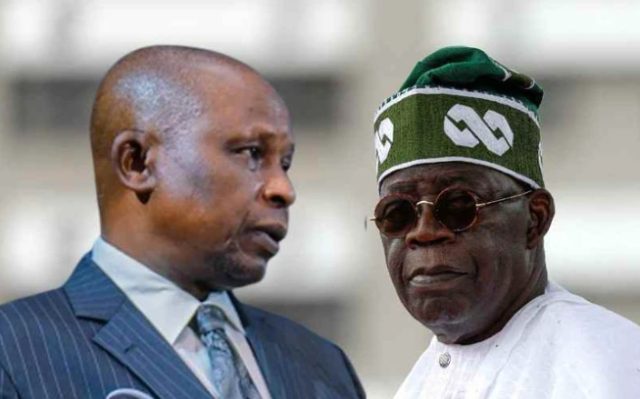The ECOWAS Court of Justice has issued a writ of execution directing the Nigerian government to implement its judgement ordering the repeal or amendment of parts of the Kano State Penal Code and Kano State Sharia Penal Code that restrict freedom of expression.
The writ, dated 23 September and received by the Federal Ministry of Justice on 6 October, stemmed from the court’s judgement number ECW/CCJ/JUD/20/25. The judgement was delivered in suit number ECW/CCJ/APP/41/23, filed by the civil society organisation Expression Now Human Rights Initiative.
According to a Certified True Copy (CTC) seen by PREMIUM TIMES on Saturday, the court cited its judgement declaring Section 210 of the Kano State Penal Code and Section 382(b) of the Kano State Sharia Penal Code Law (2000) inconsistent with Nigeria’s obligations under Article 9(2) of the African Charter on Human and Peoples’ Rights and Article 19 of the International Covenant on Civil and Political Rights (ICCPR).
PREMIUM TIMES reported that the judgement was delivered by the regional court on 9 April declaring blasphemy laws in Nigeria as a violation of freedom of expression protections guaranteed under regional and international human rights instruments.
The judgement declared that the existence of such laws is against Nigeria’s international human rights commitments.
Expression Now Human Rights Initiative, the applicant which instituted the suit, urged the court to declare that section 210 of the state’s Penal Code and section 382(b) of its Sharia Penal Code Law (2000) criminalising blasphemy as incompatible with Nigeria’s obligations to protect freedom of expression.
The organisation documented cases where individuals faced arbitrary arrest, detention, and death sentences merely for alleged blasphemous expression.
It also highlighted incidents of vigilante justice, where accused persons were killed by mobs with apparent impunity.
In its judgement, the court’s three-member bench led by Rcardo Cláudio Monteiro Gonçalves struck down the two legal provisions in the Kano State laws and ordered the Federal Republic of Nigeria to repeal or amend the identified legal provisions and similar laws in Nigeria to align with Article 9(2) of the African Charter.
It also instructed Nigeria to ensure that similar laws in other states comply with international human rights standards. Each party was ordered to bear its own legal costs.
The Attorney-General of the Federation (AGF) was tasked with enforcing the judgement through domestic civil procedure rules and reporting back to the ECOWAS Court upon completion.
The court’s enforcement writ, signed by Chief Registrar Yaouza Ouro-Sama, stressed that execution may only be suspended by a decision of the same court. was.
Execution of judgement
The enforcement step follows the inaugural meeting of Competent National Authorities (CNAs) of ECOWAS member states in Lagos.
At the meeting, President of the ECOWAS Court, Ricardo Cláudio Monteiro Gonçalves, reiterated that the court’s decisions are binding on all member states, institutions, individuals, and corporate entities.
Mr Gonçalves referenced Article 24(2) of the ECOWAS Court Protocol, which mandates that enforcement of the Court’s judgements must follow national civil procedure rules.
Mr Ouro-Sama added that CNAs are required to verify writs of execution and take necessary steps under domestic law to ensure compliance.
Nigeria’s blasphemy laws
The judgement highlights concerns over the violation of human rights in blasphemy cases in Nigeria, referencing international conventions and the Nigerian constitution, which guarantees freedom of religion and expression.
Blasphemy laws are entrenched religious issues with social and political contexts in many of the states of the conservative northern Nigeria.
The laws are in force in at least 12 of the 19 northern states.
In Kano, like other states, the law criminalises words or expressions, written or verbal, by means of gesture, which show or demonstrate any form of contempt or abuse against the Holy Qur’an or any Prophet.
Critics have said the laws pose a significant risk to religious freedom for Nigerians and those who express unpopular or dissenting beliefs, worldviews, or religious interpretations in the states where the laws are in place.
On many occasions, some people have been mobbed to death under vigilante justice for making blasphemous comments.
In 2022, Deborah Samuel, a student of Shehu Shagari College of Education, Sokoto State, was roasted alive by her fellow students on campus for making comments purported to be blasphemous in a class WhatsApp platform.
Others have been sentenced to death or are facing trials on blasphemy charges.
Yahaya Sharif-Aminu, a singer in his 20s, was sentenced to death by hanging by an Upper Sharia Court in Kano State in August 2020 for allegedly making derogatory remarks about Prophet Muhammad in a song.
But on appeal instituted by the convict, the Kano State High Court in January 2021 quashed his conviction and sentence because his trial at the Sharia court was characterised by procedural irregularities. On that basis, the court ordered his retrial.
Similarly, in August 2022, the Court of Appeal in Kano upheld the decision of the Kano State High Court by quashing Mr Sharif-Aminu’s conviction and ordering his retrial.
The case is currently pending before Nigeria’s Supreme Court, with Mr Sharif-Aminu still in detention under reportedly deteriorating health conditions.
Proponents of the blasphemy laws have argued that they prevent actions or speech that could incite religious tensions or violence and safeguard the dignity and sanctity of religious beliefs, ensuring that followers of various faiths feel respected and protected, thereby maintaining peace in a multi-religious society like Nigeria.
Although blasphemy laws are not enforced nationwide but only in specific states that have enacted them, Nigerian courts have on different occasions affirmed that these laws are consistent with the Nigerian constitution.
The Court of Appeal and the Supreme Court have validated the conviction of some blasphemy convicts on the legal basis that making laws for the maintenance of law and order is the joint responsibility of both the National and the State Houses of Assembly.
In April 2024, the Kano Division of the Court of Appeal affirmed the conviction of Abdulazeed Dauda by the Shariah Court, Rijiyar Lemo, Kano, for use of blasphemous words against Prophet Muhammad and inciting an uprising and arson.
The arguments in favour of blasphemy laws are often countered by concerns about freedom of expression guaranteed by the Nigerian constitution and international conventions and the potential misuse of such laws.
In February, the European Parliament passed a resolution calling on Nigerian authorities to immediately release Mr Sharif-Aminu, a musician sentenced to death for blasphemy in Kano State.
The EU Parliament also demanded that the government repeal blasphemy laws that contradict the country’s constitutional and international human rights obligations.
Why ECOWAS Court struck down Kano blasphemy laws
Deciding on the case on merit, the ECOWAS Court struck down two key blasphemy provisions in Kano State law as violations of international human rights standards.
The court specifically identified Section 210 of the Kano State Penal Code as vague, failing to provide clear guidance on what constitutes religious insult and therefore lacking the legal precision required under international human rights standards.
The Court further declared Section 382(b) of the Kano State Sharia Penal Code Law (2000), which imposes the death penalty for insulting the Prophet Muhammad, as “excessive and disproportionate” in a democratic society.
Though recognising states’ legitimate interest in maintaining public order and respecting religious beliefs, the court determined that these laws fail the established human rights tests of legality, necessity, and proportionality under both Article 9(2) of the African Charter on Human and Peoples’ Rights and Article 19 of the International Covenant on Civil and Political Rights (ICCPR).
Regarding allegations of state failure to prevent blasphemy-related mob violence, the court found insufficient evidence to support these claims, noting that media reports without additional corroboration did not meet the required standard of proof.
Earlier in its ruling on the preliminary objection against the suit by the Nigerian government, the ECOWAS Court confirmed its jurisdiction to hear the case under its established mandate in Article 9(4) of its Protocol to address human rights violations within member states.
While accepting jurisdiction, the court narrowed the scope of the challenge, permitting only the freedom of expression claims to proceed.
Claims regarding rights to life and religious freedom were deemed inadmissible as private rights that cannot be pursued through public interest litigation.










